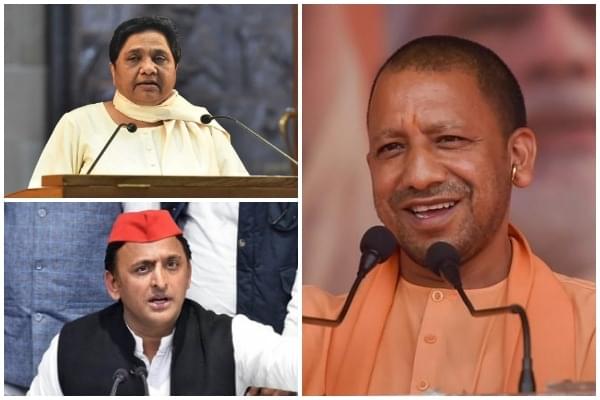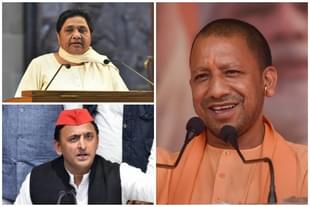Politics
Yogi Adityanath’s Triple Faults In Transferring 17 MBCs To SC Category In Uttar Pradesh
Dr A K Verma
Jul 22, 2019, 06:39 PM | Updated 06:39 PM IST
Save & read from anywhere!
Bookmark stories for easy access on any device or the Swarajya app.


For the last 15 years, successive governments of Mulayam Singh Yadav, Mayawati, Akhilesh Yadav and Adityanath Yogi have been trying to transfer 17 most-backward castes (MBCs) to Scheduled Castes (SC) category in Uttar Pradesh (UP).
Every party has its own reasons to transfer castes from OBC to SC category. Mulayam and Akhilesh Yadav of Samajwadi Party want to decongest OBC category so that 27 per cent reservation becomes more available to remaining castes in that category.
Mayawati wants their transfer to SC category, after following proper constitutional procedure, to widen her constituency. But, why is BJP so keen on such wrong transfer move?
In 2004, the Mulayam Singh government tried to do this but the move was nullified by Allahabad High Court. Now, Yogi Adityanath government is also trying to do the same thing.
Subsequent governments tried repeating the same mistake, committing triple faults — something that is procedurally wrong, substantively incorrect, and socially and psychologically off the mark.
First, procedural wrong. The procedure for inclusion or exclusion of castes or tribes is that the state assembly concerned passes a resolution proposing exclusion or inclusion of caste/s or tribe/s from SC/ST list. It is then forwarded to the central government, and if it agrees, it refers the matter to the respective national commission. If there is concurrence among all parties, then, the central government proposes necessary legislation. Once Parliament passes the law, the inclusion/exclusion becomes effective.
In this light, it is sheer gimmick or blatant fault on the part of all governments in UP trying to transfer 17 castes from OBC to SC category.
Second, substantively incorrect.
Successive UP governments never tried to get to the root of the problem.
The problem is that originally in 1950, when the lists were first drawn up, only five tribes in present day Uttar Pradesh and Uttarakhand were placed in the ST list. The remaining hundreds of tribal castes/communities were left out and arbitrarily placed either in SC or OBC category.
That not only unduly inflated population of these two social denominations but also deprived tribals of their identity and reservation quota that was transferred to SCs whose share inflated from 14 per cent to 21 per cent, leaving just 1 per cent quota for STs.
In 1935 Act, some backward tribes were given reservation benefits too. But, after independence, the government of India, generally, gave the status of ST to tribes living in ‘scheduled areas’. That ignored the claim of tribes living in other areas despite the fact that they were all very backward.
The Parliament in 2002 did transfer 17 castes from SC category to ST. But the recognition was partial because they were recognised STs in 13 districts of eastern UP and Lalitpur in Bundelkhand only. That created a piquant situation as these castes were treated as STs in a few districts whereas they remained SCs in 58 districts.
Further, the two most-populous sub-castes of Gond tribes — Kahar and Mallah — were not given recognition as STs whereas scholars like William Crooks (1896) in his seminal works Tribes and Castes of the North-Western Provinces and Oudh and Russell & Hiralal (1916) in The Tribes and Castes of the Central Provinces of India have clearly pointed out Kahars and Mallahs to be sub-castes of Gonds.
If the population of Kahars and Mallahs is worked out today on the basis of 2011 Census, it could be anywhere around 85 lakh in UP.
More, there are several nomadic and semi-nomadic tribes and denotified tribes that are wrongly placed in the OBC category. They need not be transferred to SC category.
The real issue, therefore, is not adding to the SC list. It is to identify several castes/tribes wrongly placed in SC or OBC category and giving them their correct identity by transferring them to ST category.
If properly identified and counted, the ST population in UP may be close to the national average of 8 per cent entitling them not only to 8 per cent share in reservation, but also give them six Lok Sabha and 30 assembly seats in UP.
Probably, this is what worries all political parties and they are trying to avoid the real question.
Finally, there is the issue of this move being socially and psychologically off the mark.
In the era of ‘Sanskritisation’, when all lowly-placed castes are trying to rise up in social hierarchy as per eminent sociologist M N Srinivas, the attempt by Adityanath government amounts to virtual reverse-Sanskritisation by lowering the position of 17 MBCs by transferring them to lower social hierarchy —from OBCs to Dalits.
Untouchability is prohibited by Constitution and law but criteria for putting castes in SC category is very clear — ‘pollution of castes’. How can the government suddenly make 17 castes as polluted castes without any reason?
At the risk of repeating, the real solution to this problem of caste slotting is that the government needs to correctly identify the history of classifications and move the tribes to Scheduled Tribes categories.
That would enable us to restore their due share in reservation and provide them adequate quota in Lok Sabha and assembly in UP for their empowerment.
Otherwise, just transferring a few castes here and there would be creating identity crisis, exclusion and deprivation of empowerment to very large, almost socially-extinct groups of tribals in UP.
A K Verma is Director, Centre for the Study of Society and Politics, Kanpur.





